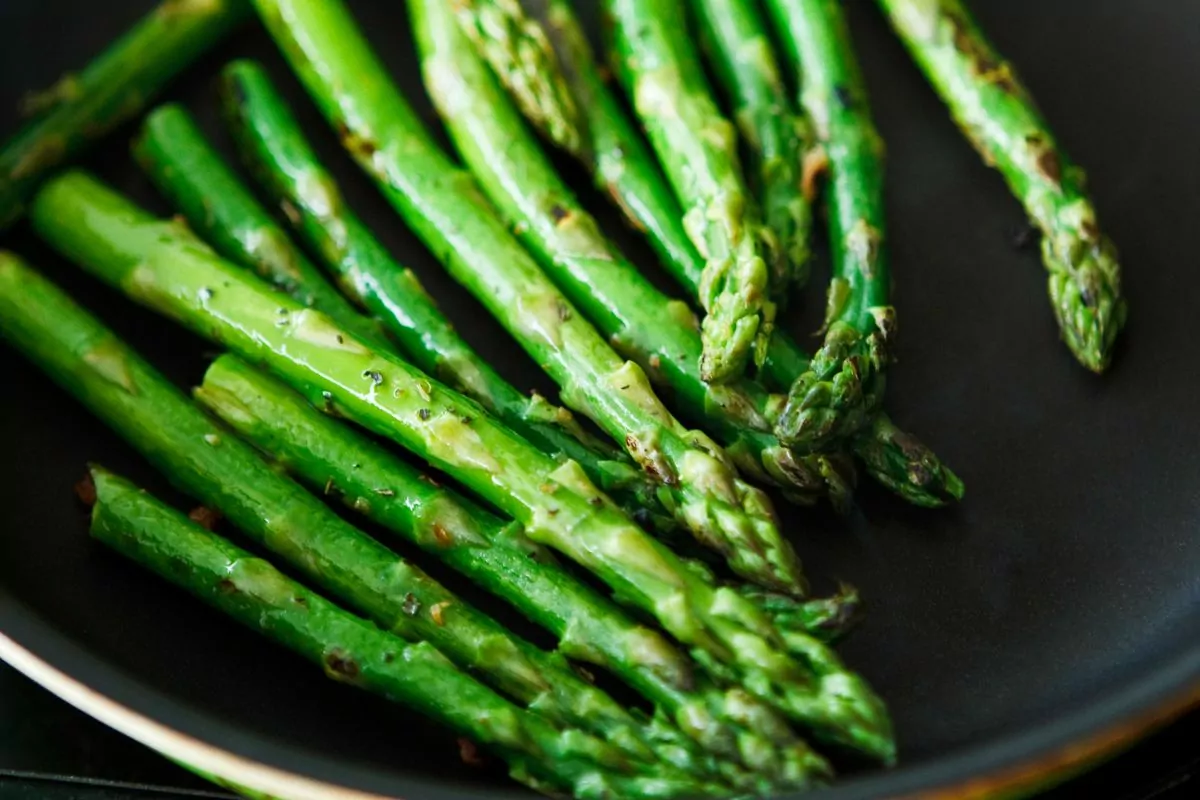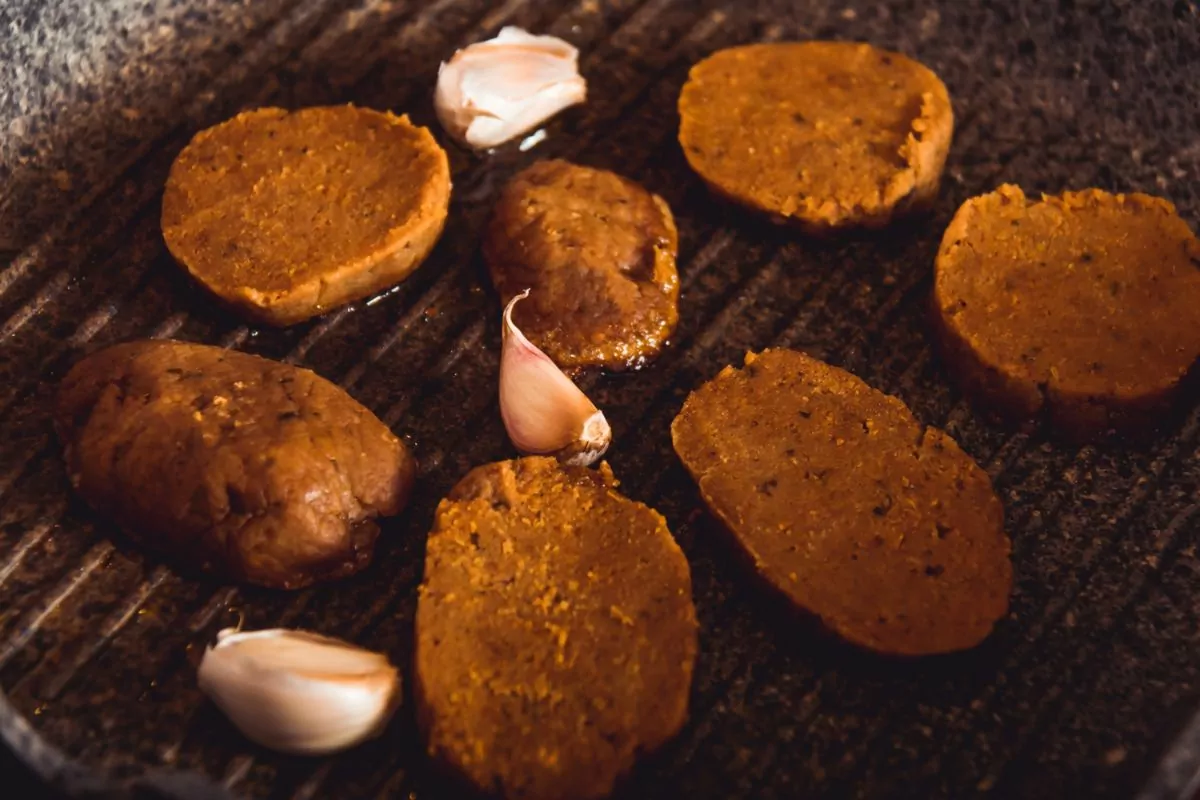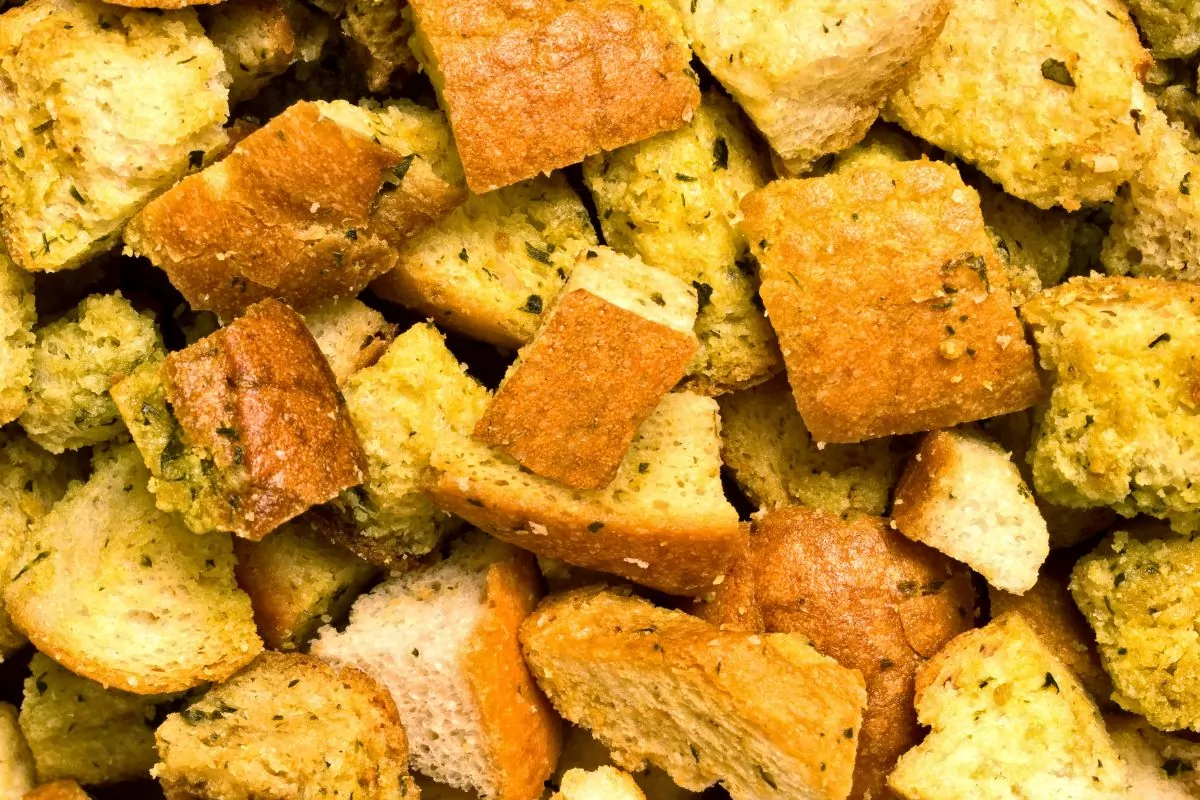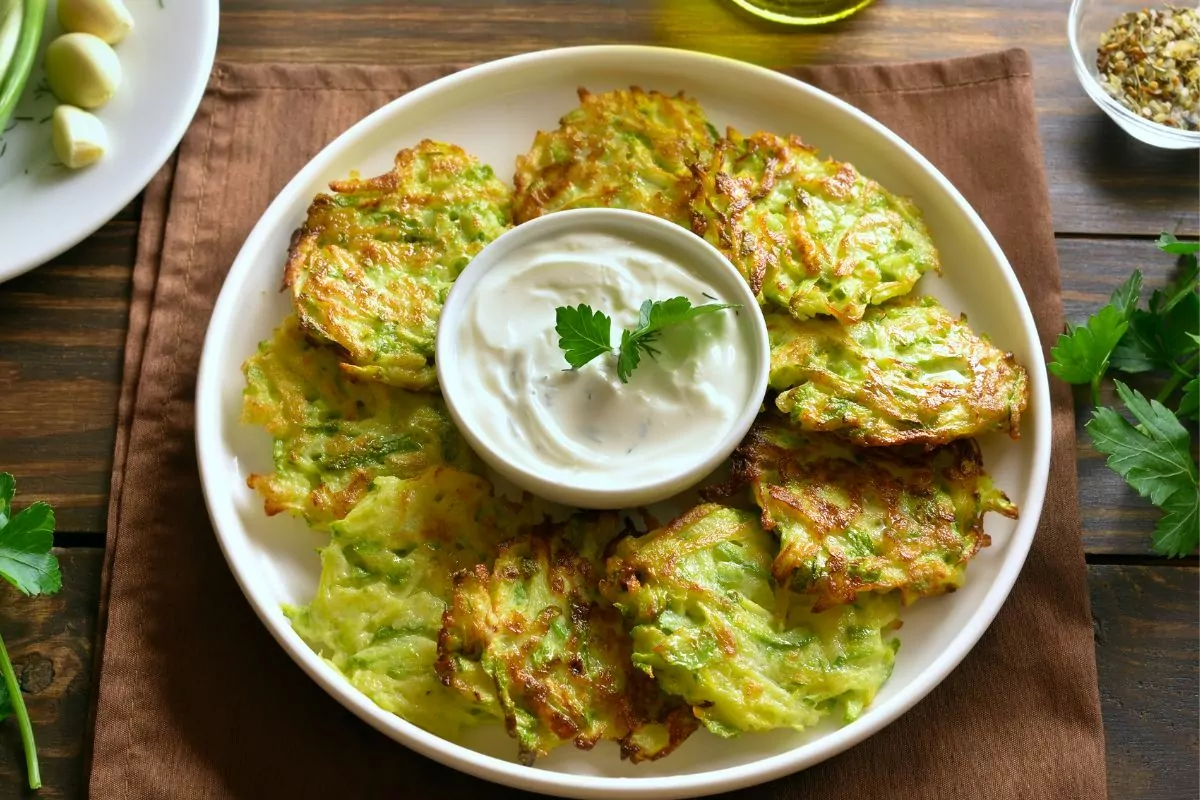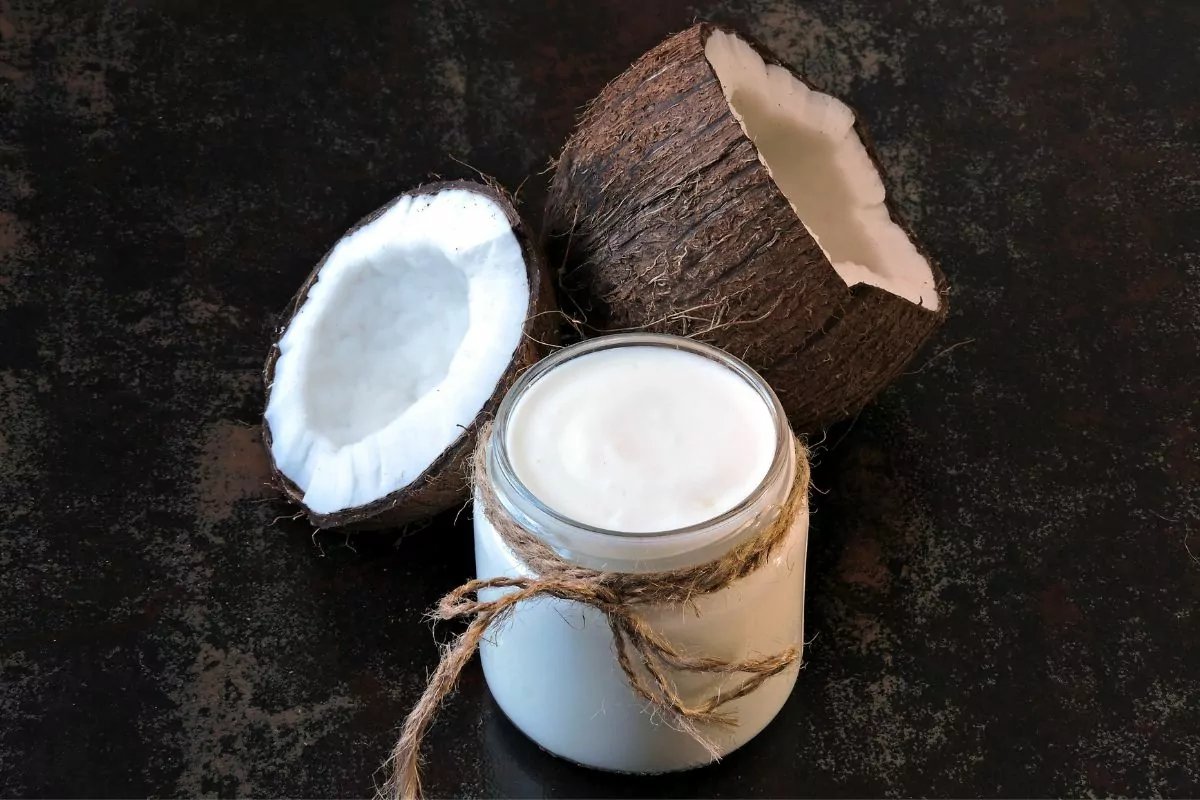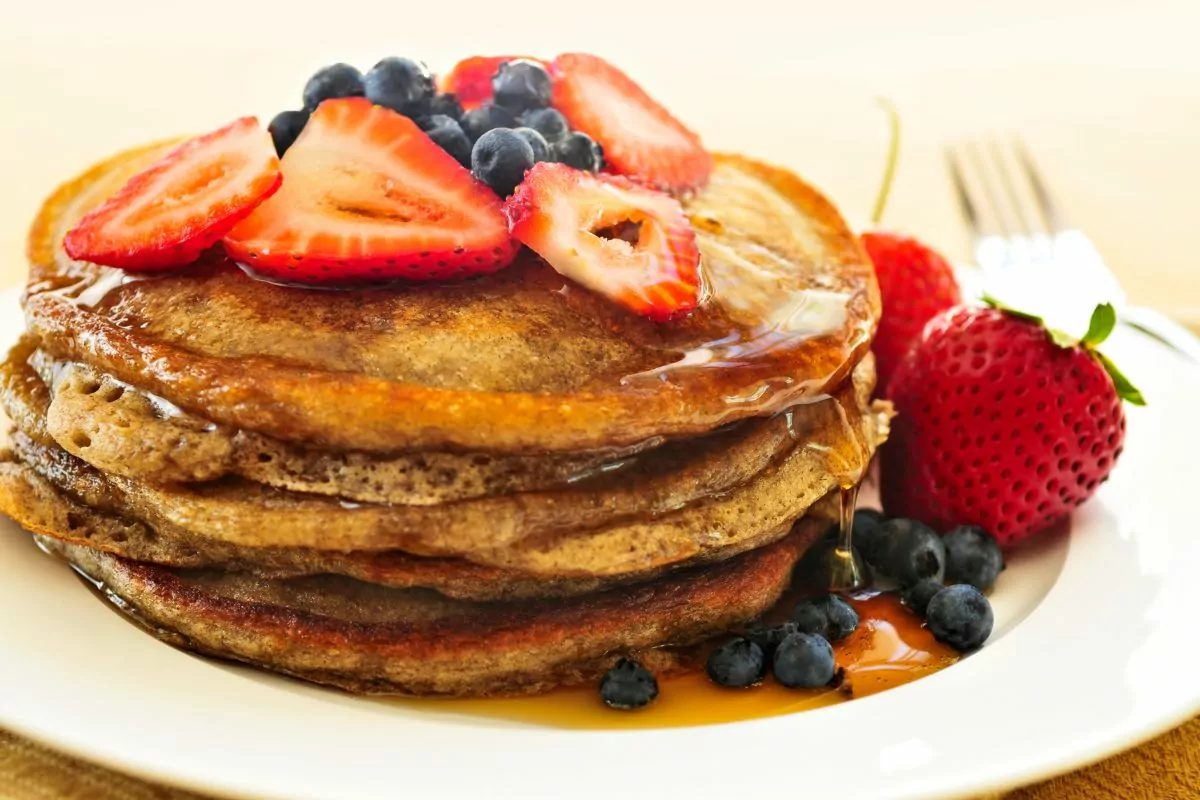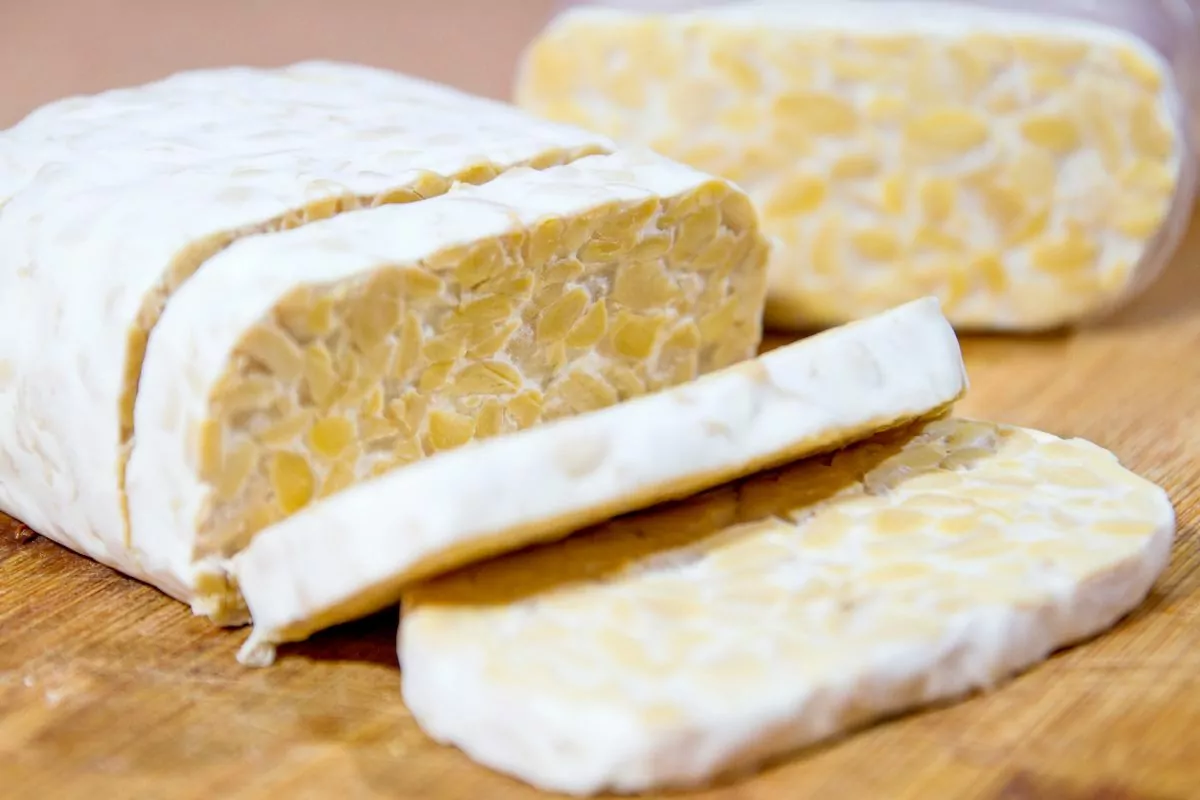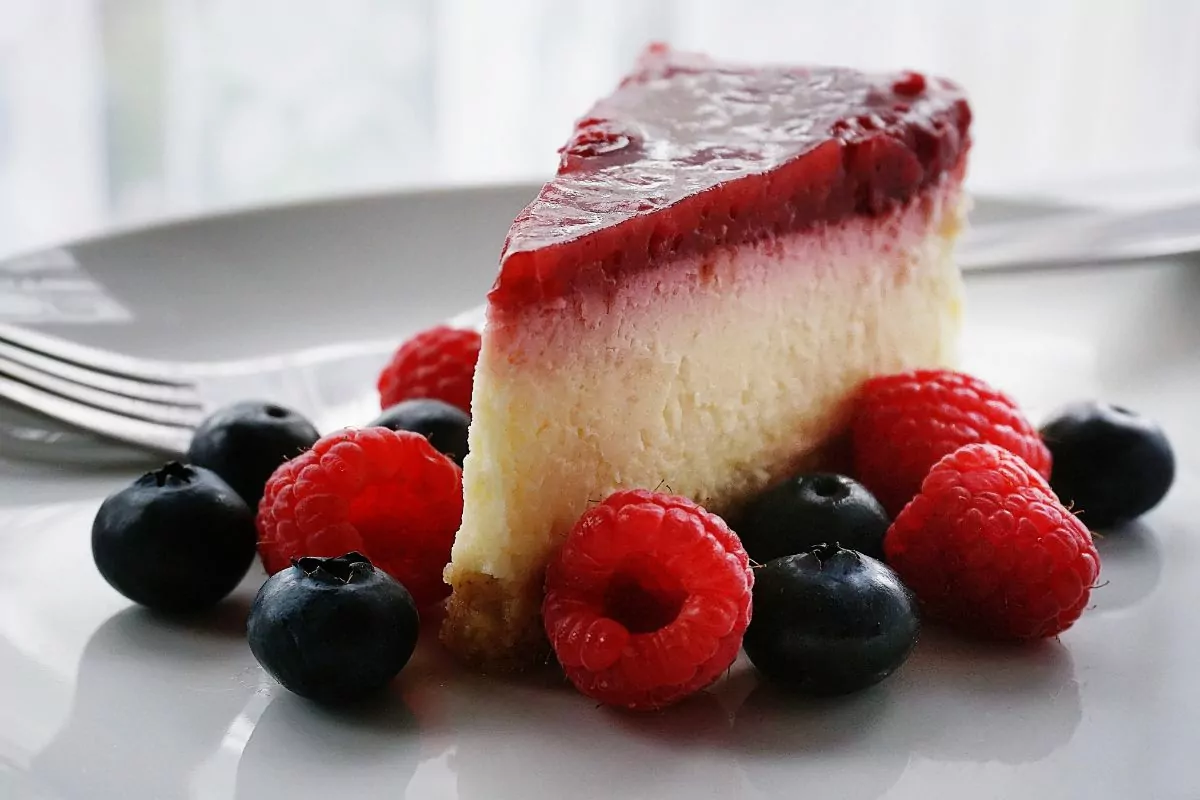Naan bread is a staple in many dishes in South Asia. This tasty delight usually comes in the form of thick flatbread, leavened with either a bread starter or yeast.
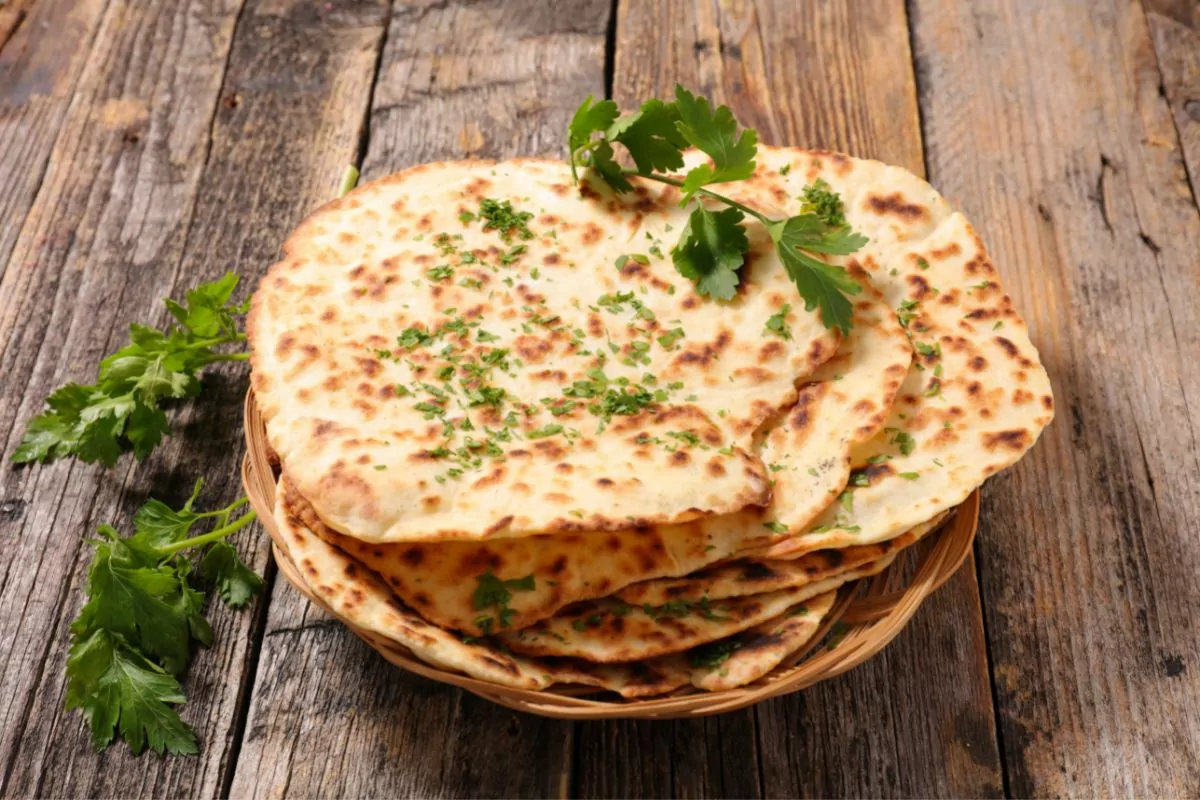
Traditional naan bread tends to be cooked on a tandoor’s wall. This is a clay oven that reaches temperatures of up to 932 degrees Fahrenheit (500 degrees Celsius).
At such astonishing temperatures, the naan bread achieves its unique air bubbles on the surface.
A favorite side to many Asian dishes and takeouts, naan bread has become as popular worldwide as it has been for centuries in South and West Asia.
And, when we consider that many Indian dishes are naturally vegan, with delectable sauces, mountains of garlic, and a cacophony of spices, you can be forgiven for thinking naan read fits into this category too.
But, is this the case? Is naan bread vegan-friendly?
Well, today, we are going to shed light on this “mystery.” If you’re vegan, you are probably praying for the answer to be “yes.”
Read on to find out more.
Naan Bread: Is It Vegan?
The food of the subcontinent includes a myriad of bread types (Check out this perfect bread recipe – French Toast Without Eggs here).
But, it is hard to argue with the fact that naan bread sits at the top of all of these as the most popular bread.
But, if you are vegan, we’re afraid we have some bad news.
The majority of naan bread available is not suitable for vegan diets.
The primary reason most naan bread is not vegan is that they contain ghee (a sort of butter), milk, yogurt, and/or eggs.
However, there is some good news – there is vegan-friendly naan bread available on the market, and if you look carefully enough, you should be able to find it in most supermarkets.
We highly recommend checking the ingredients of the bread closely beforehand, though, to ensure it is indeed vegan.
When looking at the ingredients of most naan breads out there, you will find that they contain additives that are not vegan-friendly.
But, this can differ as the recipe for naan bread is not fixed. In other words, there are various methods and ingredients that can be used to produce naan bread.
Your best bet is to check the vegan or vegetarian aisle at your local supermarket or grocery store. If they sell any vegan naan bread, it will usually be found here.
If you can not find any, the chances are that vegan naan bread is not available at that particular store.
Vegan Naan Bread Ingredients
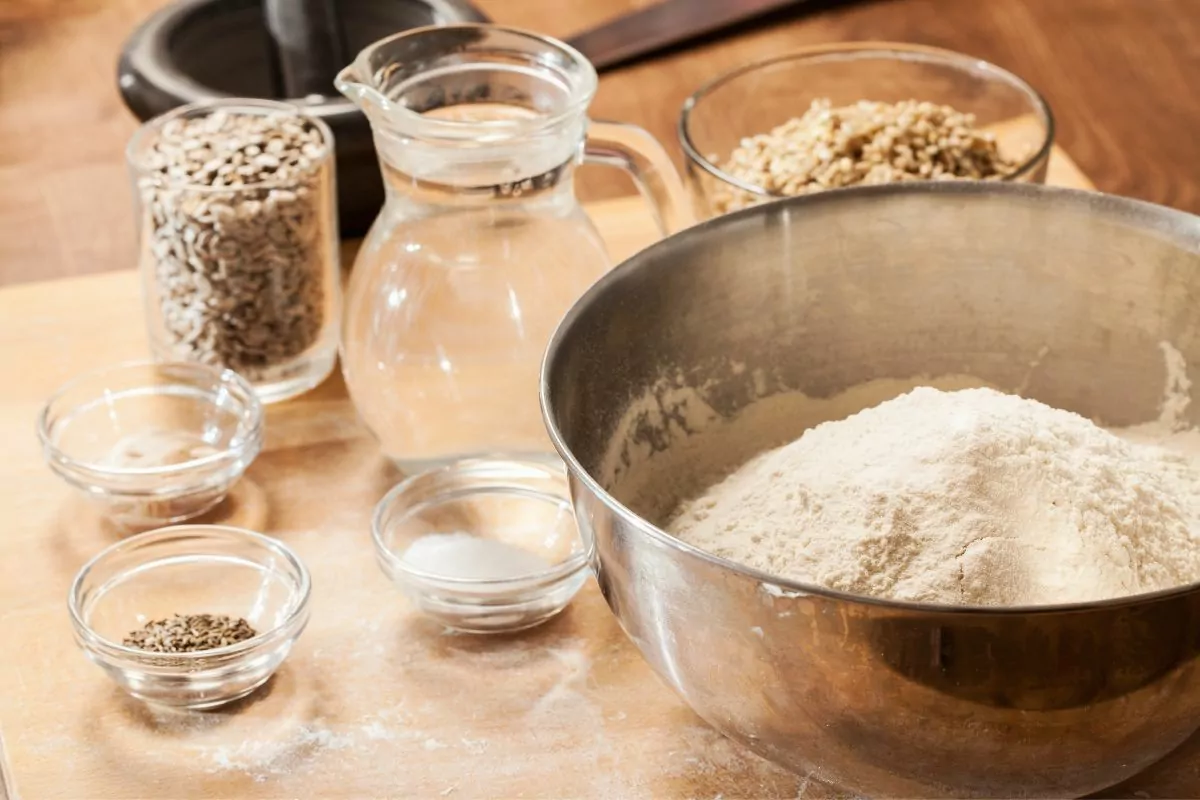
Most examples of vegan naan bread are made from flour, yeast, water, and salt. In some cases, a vegan spread may also be applied to the recipe or simply available whilst being served.
As we stated above, there is no fixed recipe for naan bread. The same applies to vegan naans.
Some recipes may also include various herbs, garlic, sugar, and/or some sort of vegan sweetening agent.
You may also find a dairy-free yogurt, which is typically coconut-based, and baking powder included, as well.
If you do find vegan naans, you may be disappointed when biting into one.
The truth is that many vegan naans currently out there do not match the standard of non-vegan, traditional naans.
By this, we mean they are rarely as chewy or fluffy as the traditional bread. And the texture is what naan bread is all about!
Having said that, some brands get pretty close to resembling regular naan, and without being told it’s vegan, you probably wouldn’t be able to tell the difference.
What Ingredients Make Traditional Naan Bread Non-Vegan?
As you are probably aware, there are many types of vegan bread on the market.
So, why is vegan naan bread so hard to come by? It all sits in what makes naan bread, well, naan bread.
The main ingredients in naan bread can be substituted for vegan alternatives, but because these ingredients are vital to the makeup of the bread, it can be hard to replicate the real deal. Such ingredients include:
- Milk
- Ghee or butter
- Yogurt
- Eggs
It’s common knowledge that most types of bread include milk and yogurt, or some form of milk derivative. Naan is no exception.
These ingredients are key in the dough of the bread (some say, the heart of the bread).
So, when these are included, the naan can not be considered vegan.
Milk and/or yogurt help to make naan bread richer, fluffier, and softer.
Yogurt, in particular, helps to leaven the dough, making the naan bread we all love so much.
Because yogurt is part of the traditional recipe, many naan makers continue to use it.
Some even use baking powder and years alongside yogurt to get a triple leaving effect.
In most cases, you will find that store- and restaurant-bought naans are made using this traditional method and, therefore, are not vegan.
Ghee is essentially clarified butter and comes from dairy milk. Therefore, it is not suitable for a vegan diet.
You will find ghee in many dishes throughout Pakistan, India, Bangladesh, and the surrounding regions.
It helps to enrich various sauces and provides that last touch of flavor for foods, such as naan bread.
Again, ghee will typically be clearly marked on the ingredient list of naans, so you can make sure it is vegan or not.
Eggs are not commonly used in the making of naan, but that’s not to say they are never present in the ingredients.
Although it is not a part of a traditional naan bread recipe, many modern chefs add eggs to the dough.
Some believe that the addition of eggs can make naan bread too rough in texture, losing that fluffiness it is well-known for.
All in all, though, some naans include eggs and are, therefore, unsuitable for plant-based diets.
Check the ingredients on the package of naan bread and, most of the time, they will be clearly marked with eggs, yogurt, milk, or ghee.
In Summary
So, now you know. Unfortunately, most naans are not suitable for vegans, but there are vegan alternatives available.
You just have to shop around a little until you hit the vegan naan jackpot!
- Cucumber, Apple And Pineapple Juice - September 12, 2022
- French Toast Without Eggs - September 12, 2022
- Cook Canned Chickpeas - September 12, 2022

